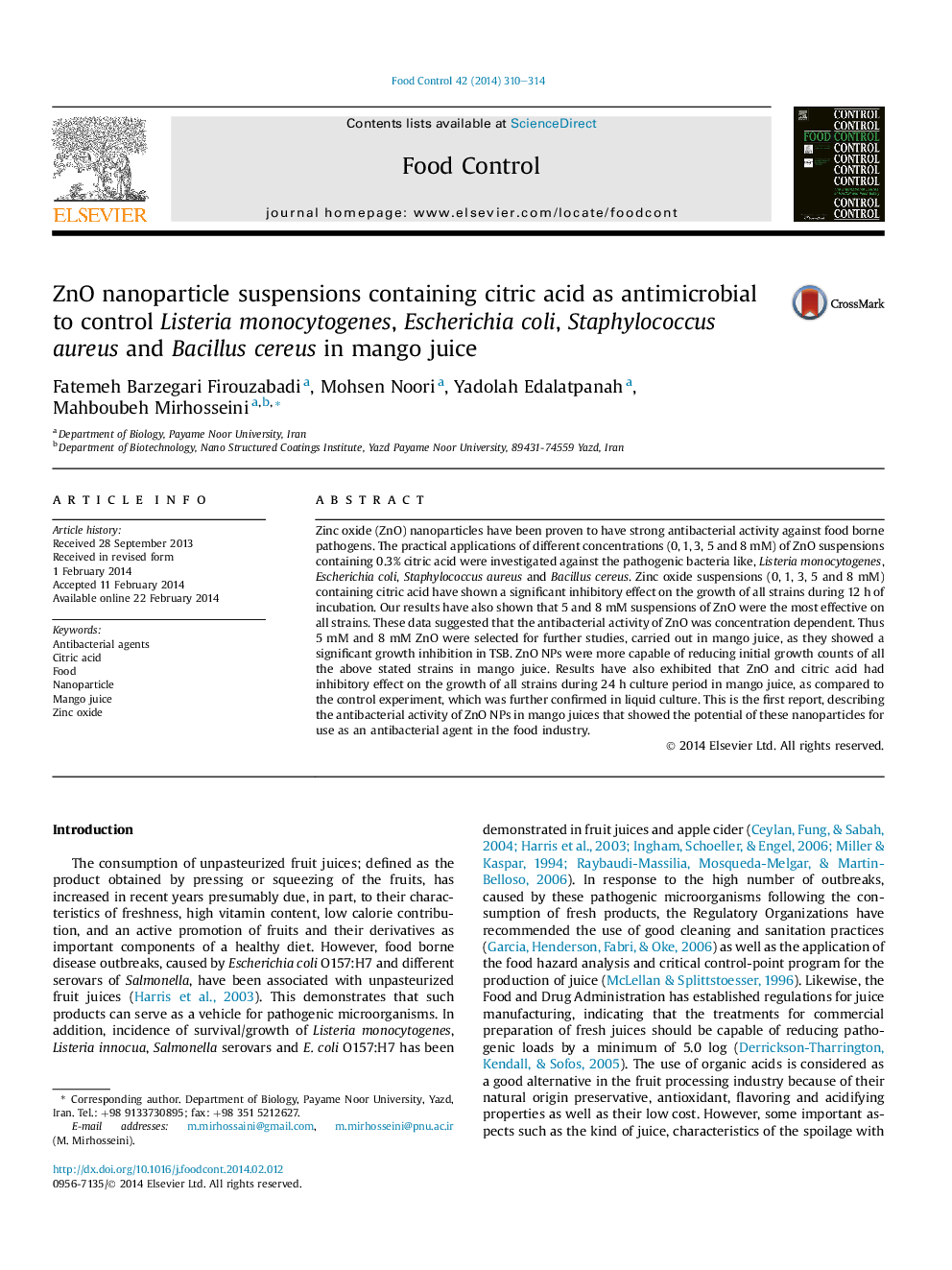| Article ID | Journal | Published Year | Pages | File Type |
|---|---|---|---|---|
| 6391723 | Food Control | 2014 | 5 Pages |
Abstract
Zinc oxide (ZnO) nanoparticles have been proven to have strong antibacterial activity against food borne pathogens. The practical applications of different concentrations (0, 1, 3, 5 and 8Â mM) of ZnO suspensions containing 0.3% citric acid were investigated against the pathogenic bacteria like, Listeria monocytogenes, Escherichia coli, Staphylococcus aureus and Bacillus cereus. Zinc oxide suspensions (0, 1, 3, 5 and 8Â mM) containing citric acid have shown a significant inhibitory effect on the growth of all strains during 12Â h of incubation. Our results have also shown that 5 and 8Â mM suspensions of ZnO were the most effective on all strains. These data suggested that the antibacterial activity of ZnO was concentration dependent. Thus 5Â mM and 8Â mM ZnO were selected for further studies, carried out in mango juice, as they showed a significant growth inhibition in TSB. ZnO NPs were more capable of reducing initial growth counts of all the above stated strains in mango juice. Results have also exhibited that ZnO and citric acid had inhibitory effect on the growth of all strains during 24Â h culture period in mango juice, as compared to the control experiment, which was further confirmed in liquid culture. This is the first report, describing the antibacterial activity of ZnO NPs in mango juices that showed the potential of these nanoparticles for use as an antibacterial agent in the food industry.
Related Topics
Life Sciences
Agricultural and Biological Sciences
Food Science
Authors
Fatemeh Barzegari Firouzabadi, Mohsen Noori, Yadolah Edalatpanah, Mahboubeh Mirhosseini,
